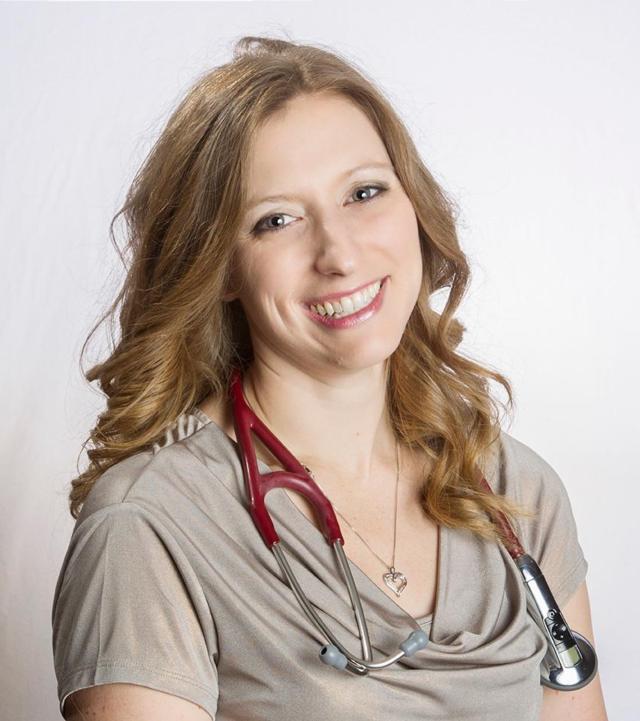 Time and again I see patients who come in to the office with a fear of cancer. Often regarded as "The Big 'C'," cancer is something we all worry about.
Time and again I see patients who come in to the office with a fear of cancer. Often regarded as "The Big 'C'," cancer is something we all worry about.
A patient will typically present to me when a relative or friend similar in age is just diagnosed with some type of cancer, and then he or she will want whatever can be done to prevent the same demise.
Get The Latest News!
Don't miss our top stories and need-to-know news everyday in your inbox.
Despite advancements in prevention, screening, and treatment, cancer outranks cardiovascular disease as the number one cause of death in those younger than 85 (1). Still, I always reassure my patients, particularly those with a friend recently diagnosed, that survival rates are improving. There is always hope, and there is almost always things we can do as individuals to cut down our risk.
Many cancers are associated with modifiable risk factors, and the number one most preventable cause of cancer is tobacco use. Nearly a third of all cancer-related deaths are related to smoking in this country (2). It is not only the largest risk factor for lung cancer, but has been implicated in leukemia as well as cancers in the mouth, nose, larynx, esophagus, pancreas, liver, stomach, cervix, kidney, large intestine, and bladder (3).
Excess sun exposure can lead to skin cancer. Furthermore, UV exposure from tanning beds has been classified as a human carcinogen.
Also, for people who do not smoke, physical activity is a powerful modifiable risk factor, especially for colon and breast cancer. Obesity is estimated to cause 20 percent of all cancers (4). Excess alcohol consumption increases the risk of multiple cancers too.
I tell my patients that screening is paramount in the early detection of cancer. The United States Preventive Services Task Force (USPSTF) holds the guidelines we healthcare providers use to base our screening measures. Patients can go to their website for detailed information at uspreventiveservicestaskforce.org.
 Not every cancer has a screening test, but for those that do, patients and providers alike must take up the responsibility to have these done. The cancers listed below have recommended screening tests as outlined by the USPSTF:
Not every cancer has a screening test, but for those that do, patients and providers alike must take up the responsibility to have these done. The cancers listed below have recommended screening tests as outlined by the USPSTF:
* Breast cancer: Biennial screening mammography is recommended for women aged 50-74 and for some women younger and older based on risk factors and in other contexts.
* Colon cancer: Screening colonoscopies in persons without any risk factors begin at age 50. Usually, these are recommended at 10-year intervals. However, if there is a family history of colon cancer or if you ever had colon polyps, the procedure may need to be done when younger or more frequently.
* Lung cancer: In current or recent smokers aged 55-80, the USPSTF suggests an annual low-dose CT as screening. Seek out your healthcare provider for specifics.
* Cervical cancer: Screening for ages 21-65 is recommended for women who still have a uterus / cervix. Talk to your doctor if you have an immunocompromising disease or ever had an abnormal pap smear, as the recommendation may be different.
General lifestyle recommendations are:
* Avoid tobacco
* Exercise at least four times a week with aerobic activity
* Maintain a healthy weight
* Limit alcohol to 1-2 drinks a day
* Avoid excess sun exposure
* Consume a diet high in fiber, fruits and vegetables and low in saturated fats
* Protect yourself from sexually-transmitted diseases
* Routinely talk with your doctor to get recommended screening tests
Not all cancers are preventable or even easily detectable. But many are. We healthcare providers always encourage our patients to maintain a healthy lifestyle and relationship with his or her doctor.
1. Siegel R, Ward E, Brawley O, Jemal A. Cancer statistics, 2011: The impact of eliminating socioeconomic and racial disparities on premature cancer deaths. CA Cancer J Clin 2011; 61:212. uptodate.com/contents/cancer-prevention/abstract/3
2. American Cancer Society. Cancer Facts and Figures 2005. American Cancer Society, Atlanta, GA 2005.
3. Sasco AJ, Secretan MB, Straif K. Tobacco smoking and cancer: a brief review of recent epidemiological evidence. Lung Cancer 2004; 45 Suppl 2:S3. uptodate.com/contents/cancer-prevention/abstract/18
4. Wolin KY, Carson K, Colditz GA. Obesity and cancer. Oncologist 2010; 15:556. uptodate.com/contents/cancer-prevention/abstract/4
Michele Brannan is a certified Physician Assistant of Internal Medicine at Alton Internal Medicine and has been in practice in the area for 10 years.
The health information provided herein is not intended to replace the advice or discussion with a healthcare provider and is for educational purposes only. Before making any decisions regarding your health, speak with your healthcare provider.
More like this:

